Writing
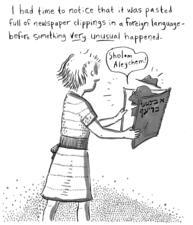
I had time to notice that it was pasted full of newspaper clippings in a foreign language - before something very unusual happened.
Twenty-First Century Jewish Literature by Women in the US
Twenty-first-century Jewish women’s writing in the United States is wide-ranging in genre and topic. In this body of literature, we can find insightful and nuanced stories of contemporary American life as well as fiction that delves into lost or forgotten Jewish histories. From a female Spinoza to a female golem, a strong feminist ethic is pervasive in these writings.
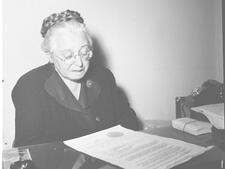
Sophie A. Udin
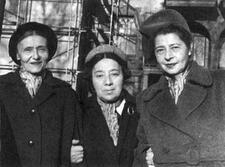
Miryam Ulinover
Born in Poland, Miriam Ulinover was one of the great Yiddish poets of the early twentieth century. Through her poems, she wove traditional Jewish life in the shtetl into a mythical vision of Jewish life, tradition, childhood, and identity.
Liudmila Ulitskaia
Liudmila Ulitskaia is one of Russia’s most famous and celebrated modern writers, known for her voice of moral authority and dissidence against a politically repressive Russian state. Her contemporary realist prose and fiction combines traditional plot and narrative techniques with candid treatment of conventionally taboo subjects such as sexuality, politics, and disease.
Ellen Umansky
Ellen Umansky
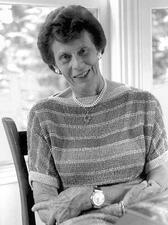
Joy Ungerleider-Mayerson
Joy Ungerleider-Mayerson rescued the faltering Jewish Museum in New York. She shifted the museum’s focus from avant-garde art back to Judaica, launched exhibitions of art rescued from the Holocaust, and restored the struggling institution’s financial stability. She also created the Dorot Foundaiton, launching some of the finest non-denominational Jewish study programs worldwide.
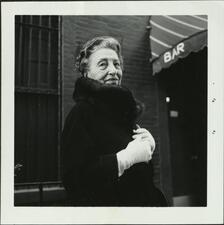
Jean Starr Untermeyer
Poet Jean Starr Untermeyer’s work was first influenced by her connections with writers Sara Teasdale, Amy Lowell, Carl Sandburg, and Robert Frost. Through her many volumes of published poetry and translations, Untermeyer explored her own personal tragedies and defended women’s right to use personal experience in their art.
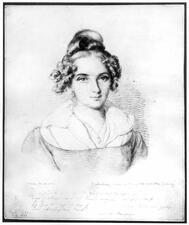
Rahel Levin Varnhagen
Rahel Levin Varnhagen was the first intellectual Jewish woman in German history who established herself as an independent thinker. Her way of writing was dialogical; she wrote to and together with her addressees.
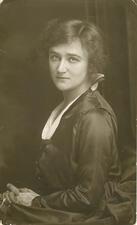
Salka Viertel
Salka Viertel was an influential actress, writer, and organizer of Jewish European immigrants in Hollywood. Viertel co-wrote screenplays for several Greta Garbo films. Her Hollywood salon welcomed émigrés such as Thomas and Heinrich Mann, Bertolt Brecht, Fred Zinnemann, Arnold Schoenberg, and Reinhardt.
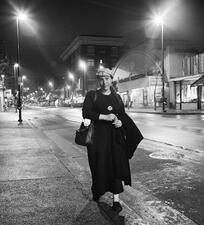
Julia Vinograd
Julia Vinograd was a street poet and the author of 68 slender volumes of verse widely admired for their vivid portraits of bohemians and street people in twentieth-century Berkeley, California. Her writing, which evolved in café open mic readings, is notable for its oratorical clarity, emotional warmth, and surreal imagination.
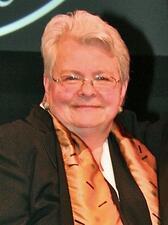
Paula Vogel
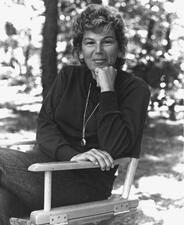
Miriam Dworkin Waddington
Miriam Dworkin Waddington was a distinguished and pioneering Canadian poet and literary critic. Her original poetry included many explicit references to her Jewish secular outlook, and other poems were infused with a commitment to social justice that drew on that same source. Impatient with the Canadian “canon” of her time, she introduced to wider audiences the works of A.M. Klein and poets writing in Yiddish with her literary criticism and her translations.
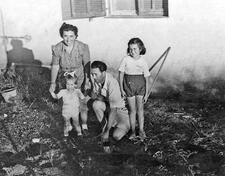
Yona Wallach
Regarded by many of her friends and colleagues as the most important among the young Israeli poets of the 1960s, Yona Wallach has had a profound effect on Israel’s cultural life ever since her works began to appear in periodicals in the early 1960s, despite her early death from cancer in 1985.
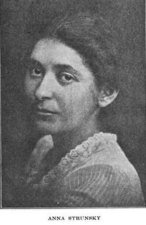
Anna Strunsky Walling
Anna Strunsky Walling was a Russian-born author, journalist, lecturer, and social activist. She produced several novels and memoirs and was involved in a number of political organizations, including the Socialist Labor Party and the National Association for the Advancement of Colored People, which she and her husband helped found.
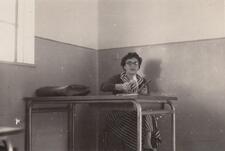
Charlotte Wardi
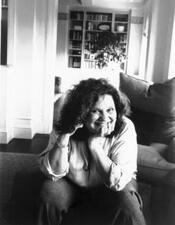
Wendy Wasserstein
In 1989, Wendy Wasserstein won the Pulitzer Prize for The Heidi Chronicles and was the first woman playwright to win a Tony Award. After graduating from the MFA program at the Yale School of Drama, in which she was the only woman, Wasserstein wrote countless dramas, three musicals, various comedy skits for television, and a series of essays published in the New Yorker, Esquire, and Harper’s Bazaar.
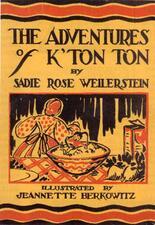
Sadie Rose Weilerstein
An award-winning children’s author and the creator of the beloved Jewish story-book hero K’tonton, Sadie Rose Weilerstein’s stories for Jewish children in English heralded the beginning of a new genre. Weilerstein published the first version of The Adventures of K’tonton in 1935, and by 1964 she had published eleven books.
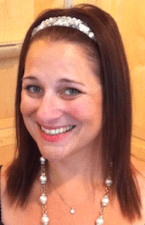
Jennifer Weiner
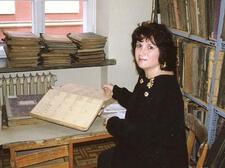
Miriam Weiner
Through her genealogical program Routes to Roots, Miriam Weiner helped Jews access historical records that had survived the Soviet suppression of information throughout Eastern Europe.
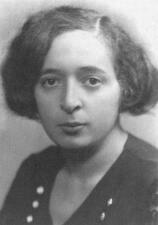
Trude Weiss-Rosmarin
Trude Weiss-Rosmarin made great advances for women’s involvement in Jewish life through the schools she created and her editorship of the Jewish Spectator. A dynamic speaker backed by broad-ranging Jewish scholarship and a prodigious memory, she was a popular lecturer at synagogues and Jewish centers across the United States and a foremost critic of American Jewish life and institutions.
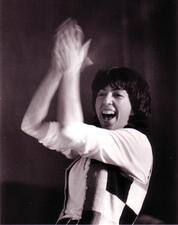
Naomi Weisstein
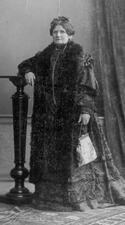
Pauline Wengeroff
Pauline Wengeroff was the author of an extraordinary two-volume work in German, Memoirs of a Grandmother: Scenes from the Cultural History of the Jews of Russia in the Nineteenth Century. First published in 1910, the memoir richly depicts traditional Jewish society in Russia, its unraveling during the nineteenth century, and the devastating impact this dissolution had on families and especially on women.
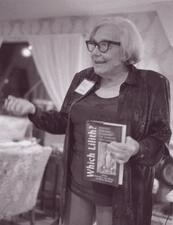
Henny Wenkart
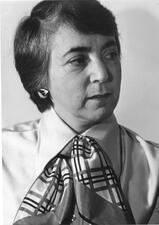
Barbara Mayer Wertheimer
Barbara Mayer Wertheimer gave a voice to the voiceless, empowering thousands of women union workers through her initiatives in the late 20th century. Wertheimer established the trade union women’s studies program in 1972 and developed several other academic programs, giving working women access to education and the ability to interact and organize with other union workers.


